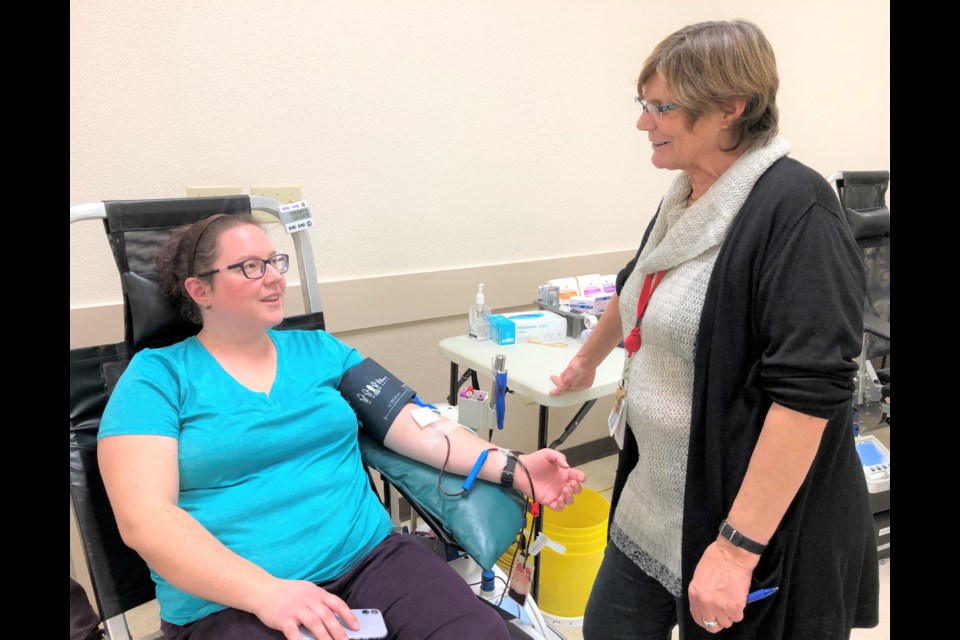With Canadian Blood Services usually in need of donations, dozens of residents stepped forward recently to help give the gift of life.
About 135 people rolled up their sleeves on Dec. 3 at the Golden Nugget Centre to make a donation during Canadian Blood Services’ (CBS) monthly clinic in Moose Jaw. The main CBS office in Regina normally sends mobile clinics throughout southern Saskatchewan since the clinic in the Queen City is the only hard location.
For Dale Toni, this was his 183rd blood donation. He explained it had become almost a habit, especially since he has been giving for the last 50 years. He began giving when he was in his 20s in university after his grandmother was affected by cancer and needed several units of blood.
Although his blood was not compatible with hers, Toni still thought he could still help in some way.
“It makes me feel good to help somebody else,” he continued. “You do things and you get into a routine. When I can’t give — because I’m sick, let’s say — I feel disappointed.”
Besides being able to help three people with one donation, another positive aspect of giving that Toni appreciates is how a community atmosphere has developed at the clinic. He pointed out he is able to see almost the same people every two months, which allows them to develop camaraderie.
“It’s like a coffee group, where we can shoot the breeze,” he said. “It’s sometimes the only time I see them in two months.”
Giving blood is easy to do, Toni added. It isn’t that painful, the body can recover from it easily, while it’s also important to make a difference in others’ lives.
Wearing a red vest, Bob O’Reilly explained he had been a volunteer with Canadian Blood Services since 2006. That was the year when doctors told him he had to stop giving blood since they thought he had suffered a mini-stroke. Before that occurred, however, he had reached 129 donations.
He was upset when he couldn’t give anymore, but perked up when he learned he could volunteer instead. O’Reilly has come to enjoy volunteering since he can meet people and interact with regular givers. He joked it’s also a good way to spend an afternoon.
O’Reilly decided to start giving blood in his early 20s in 1969 since his mother needed a blood transfusion when he was a child. Giving turned out to be the right choice, since he pointed out he felt full of energy a couple of days after giving, likely when his body had started to build back up his blood supply.
“I think everybody should (give),” O’Reilly added. “It’s the human thing to do if you can … . It makes you feel better after and it helps (three) people.”




